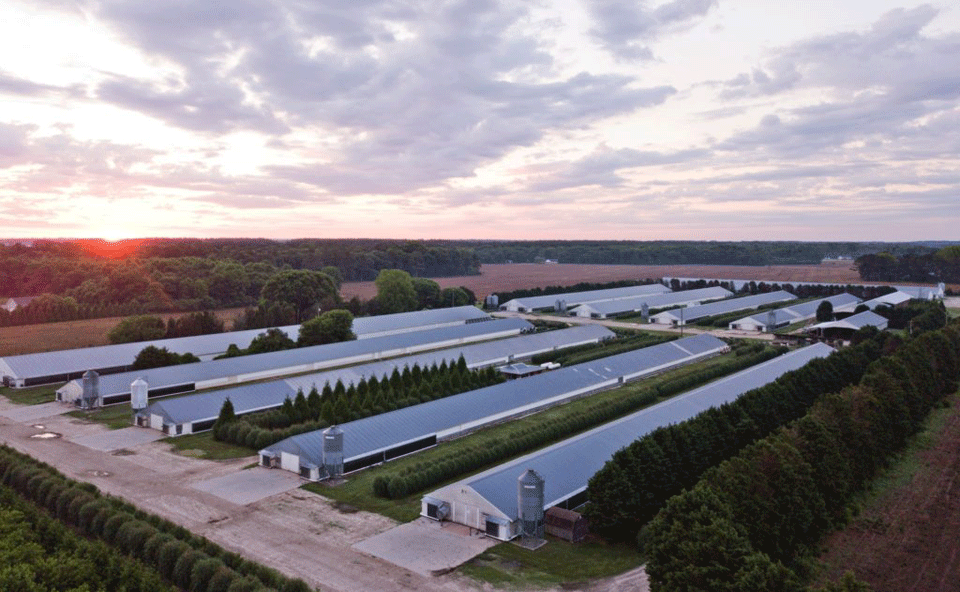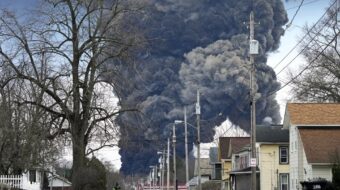
RICHMOND, Va.—To cheers from Virginia workers and unions, the state Department of Labor and Industry went where GOP President Donald Trump’s Occupational Safety and Health Administration won’t: Imposing a statewide emergency standard ordering firms to immediately craft and put in place plans to protect their workers against the coronavirus pandemic.
And if the firms don’t obey, they’ll get hit in the pocketbook. The maximum Virginia fine will be $130,000 and there are no restrictions—including no restrictions on who is covered. The standard will apply to “every employer, employee and place of employment” in the state.
By contrast, maximum fine for seriously breaking an OSHA standard is $12,471, and 10 times that for a willful and serious violation, such as when a worker dies.
The Virginia board’s 9-2 vote July 15 came after unions and workers lobbied long and hard for a quick OK of the standard, which Gov. Ralph Northam (D), an M.D., proposed. It’s the first such statewide coronavirus-specific standard in the U.S.
Unions, led by National Nurses United, have been lobbying not just for a temporary federal emergency standard against the virus but for a permanent national OSHA standard to force firms to protect workers against all airborne viruses.
Trump’s OSHA has turned a deaf ear. At his orders, it shelved work on a national standard. After NNU lobbying, that work began in the waning days of the Democratic Obama administration. Since the pandemic started, OSHA has issued only two coronavirus-related job safety complaints against workers, out of more than 5,000 it’s received.
Virginia’s temporary emergency standard to protect workers against the coronavirus is effective immediately, and anyone—not just safety and health inspectors—can complain to the state when a firm flunks, the 38-page standard says.
It also covers more than just airborne exposure to the virus. Inspectors can also cite firms whose workers come in “contact with contaminated surfaces or objects, such as tools, workstations, or break room tables,” or toil in “shared spaces such as workstations, break rooms, locker rooms, and entrances/exits to the facility.” And it covers, too, “industries or places of employment where sharing transportation is a common practice, such as ride-share vans or shuttle vehicles, car-pools, and public transportation, etc.”
Virginia can enforce its anti-coronavirus standard in tandem with employer violations of other state safety and health standards that could “directly or indirectly” cover coronavirus exposure. That includes standards “dealing with but not limited to… personal protective equipment, respiratory protective equipment, sanitation, access to employee exposure and medical records, occupational exposure to hazardous chemicals in laboratories and hazard communication,” the standard reads.
And if one of those standards conflicts with the anti-coronavirus standard, the state safety and health inspector shall apply the strongest one.
“Enforcement will be based on the exposure risk level presented by SARS-CoV-2 virus-related and COVID-19 disease-related hazards present or job tasks undertaken by employees,” the standard warns, using the virus’s official names.
“The standard prohibits workers suspected of having the coronavirus from going to work, requires companies to notify workers of possible exposure to infected co-workers within 24 hours and includes mandates about physical distancing, protective gear, sanitation, disinfecting and hand washing. It also prohibits employers from retaliating against workers who air concerns about on the job infection risks,” a legal summary from Public Citizen says.
“We commend Virginia for being the first state to issue a comprehensive standard to protect all workers from COVID-19,” AFL-CIO President Richard Trumka said. “The virus continues to pose a grave danger to working people and this strong, enforceable standard requires state employers to improve working conditions through clear, science-based measures, preventing further outbreaks in our communities.
“Virginia had to step in where the Trump administration has failed woefully to protect workers who are risking our lives and our livelihoods during this pandemic. Workers and our unions will continue to advocate for a federal standard that protects all working people, private and public, no matter where we live.”
The fed’s new Occupational Safety and Health Director, Rebecca Reindel, bluntly outlined the need for a federal standard in an interview with CNBC a week before, the same day the AFL-CIO Executive Council issued a statement blasting Trump regime refusal to act. The organization had just lost a federal court suit to force OSHA to move.
“We know 125,000 people have died, and we know the workplace is a major source of exposure,” Reindel said then. “Besides, it’s the only place most people are going.″
Charlotte Brody, vice president for health initiatives of the BlueGreen Alliance, and a resident of rural Esmont, Va., added Virginia’s standard, if enforced, would particularly help workers of color. Some 28% of all Virginians are people of color, but they’re 63% of the state’s cumulative coronavirus cases, now up to 73,527 as of 3:30 pm on July 16, and 36% of its deaths, now up to 2,007.
“While the U.S. Senate and Donald Trump continue to fail to act, Virginia has put forward an enforceable set of rules for workplaces that will make every Virginian safer—every poultry worker in Rockingham and Accomack Counties, every nurse in Fairfax and Wise Counties, and every other worker and all of their neighbors everywhere in the state,” she said.
Enforcement may be a problem. The latest AFL-CIO Death On The Job report says Virginia has three federal OSHA inspectors and 44 state inspectors, or one inspector per 81,667 workers.












Comments